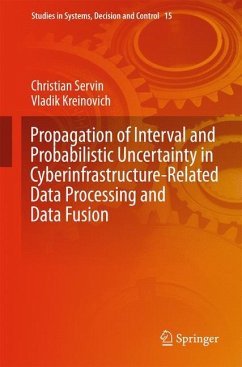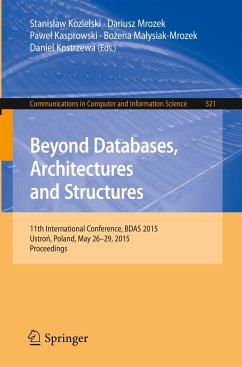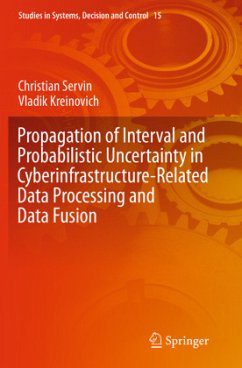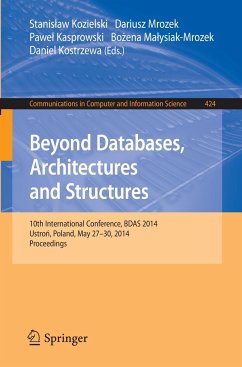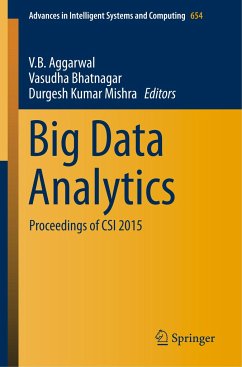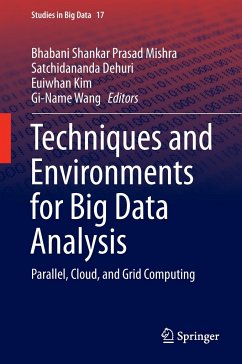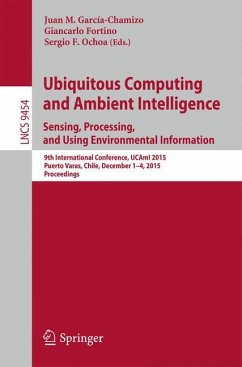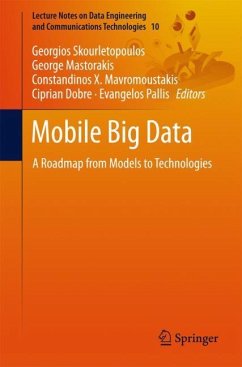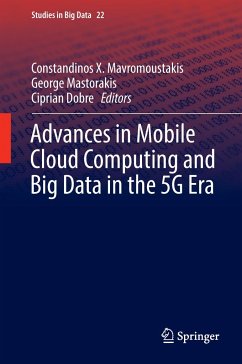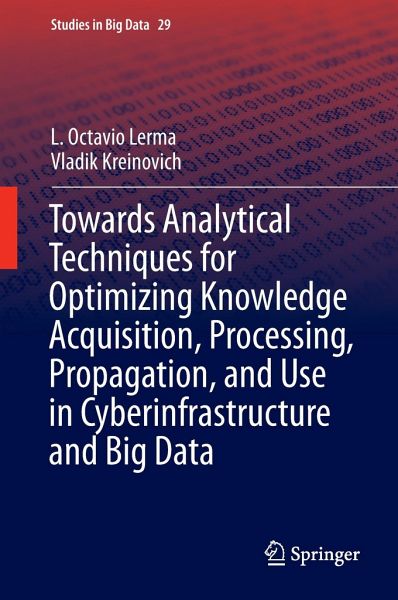
Towards Analytical Techniques for Optimizing Knowledge Acquisition, Processing, Propagation, and Use in Cyberinfrastructure and Big Data
Versandkostenfrei!
Versandfertig in 6-10 Tagen
66,99 €
inkl. MwSt.
Weitere Ausgaben:

PAYBACK Punkte
33 °P sammeln!
This book describes analytical techniques for optimizing knowledge acquisition, processing, and propagation, especially in the contexts of cyber-infrastructure and big data. Further, it presents easy-to-use analytical models of knowledge-related processes and their applications.The need for such methods stems from the fact that, when we have to decide where to place sensors, or which algorithm to use for processing the data-we mostly rely on experts' opinions. As a result, the selected knowledge-related methods are often far from ideal. To make better selections, it is necessary to first creat...
This book describes analytical techniques for optimizing knowledge acquisition, processing, and propagation, especially in the contexts of cyber-infrastructure and big data. Further, it presents easy-to-use analytical models of knowledge-related processes and their applications.
The need for such methods stems from the fact that, when we have to decide where to place sensors, or which algorithm to use for processing the data-we mostly rely on experts' opinions. As a result, the selected knowledge-related methods are often far from ideal. To make better selections, it is necessary to first create easy-to-use models of knowledge-related processes. This is especially important for big data, where traditional numerical methods are unsuitable.
The book offers a valuable guide for everyone interested in big data applications: students looking for an overview of related analytical techniques, practitioners interested in applying optimization techniques, and researchers seeking to improve and expand on these techniques.
The need for such methods stems from the fact that, when we have to decide where to place sensors, or which algorithm to use for processing the data-we mostly rely on experts' opinions. As a result, the selected knowledge-related methods are often far from ideal. To make better selections, it is necessary to first create easy-to-use models of knowledge-related processes. This is especially important for big data, where traditional numerical methods are unsuitable.
The book offers a valuable guide for everyone interested in big data applications: students looking for an overview of related analytical techniques, practitioners interested in applying optimization techniques, and researchers seeking to improve and expand on these techniques.



